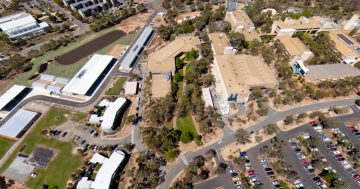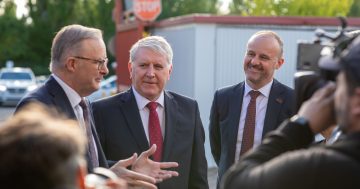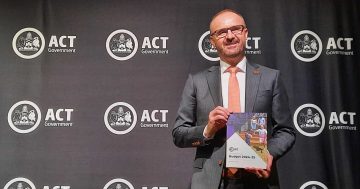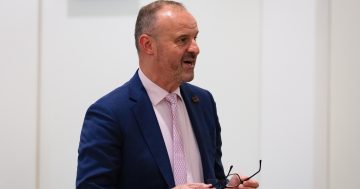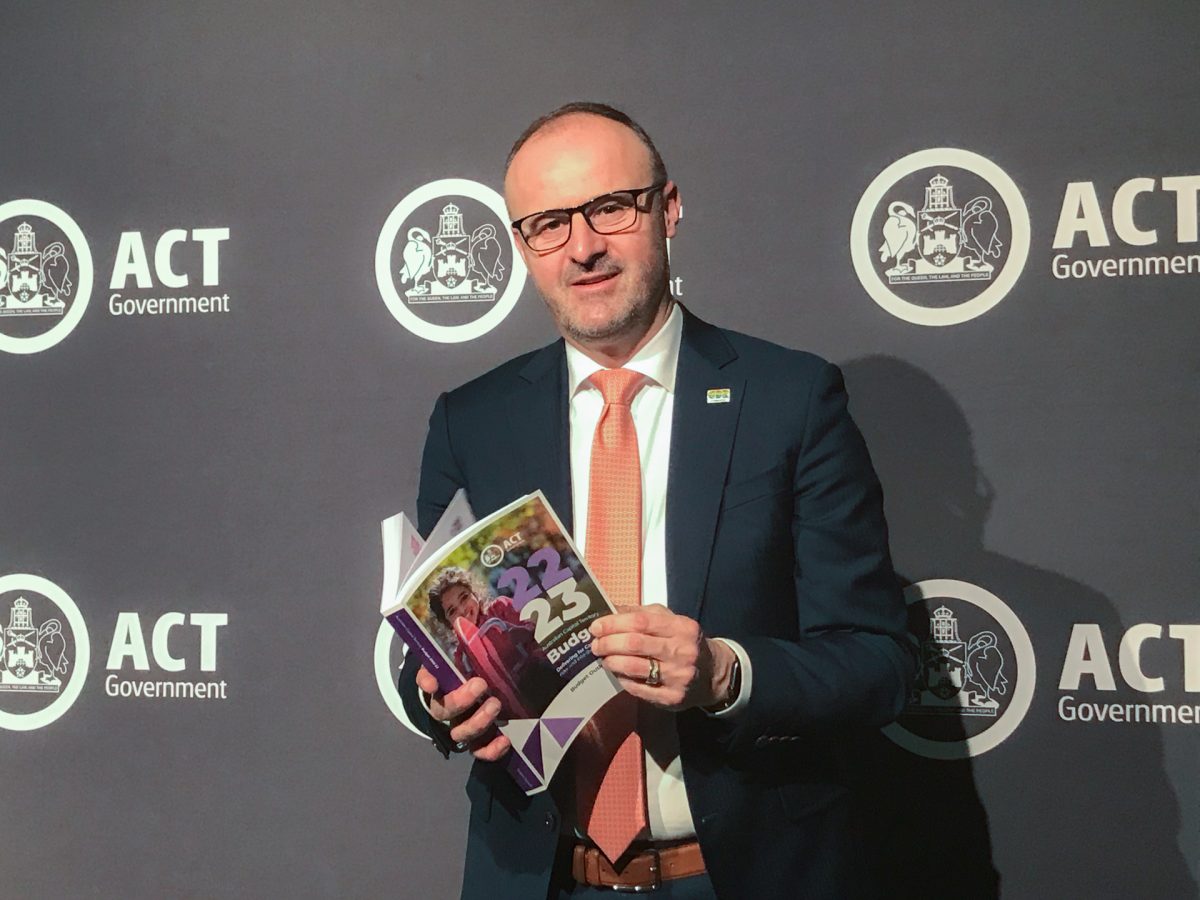
Chief Minister Andrew Barr: the Budget may be willing but the skills are lacking. Photo: Lottie Twyford.
Skills shortages are hampering the ACT Government’s ability to deliver its infrastructure program and services, Chief Minister Andrew Barr has told Prime Minister Anthony Albanese ahead of this week’s Jobs and Skills Summit in Canberra.
Mr Barr has written to Mr Albanese and made a submission outlining the ACT’s particular needs and calling for a boost to skilled migration, greater workforce participation, and increased job security and pay.
He also highlighted the need to prepare for future skills needed to support the economy’s transition to clean energy sources to reduce greenhouse emissions and the growing demands for ICT workers as digitisation gathers pace, including cyber security needs.
The ACT faced acute skills shortages in construction, health, education, information and communications technologies, hospitality, personal services and in niche areas such as bus drivers, Mr Barr said.
“The ACT labour market is facing significant labour supply challenges with the unemployment rate at 3.3 per cent and only 0.6 unemployed people for every job vacancy,” he said.
Mr Barr urged national health funding reform to be given priority and for the ACT to be assessed under a ‘high needs’ category usually classed as remote or regional.
“In the past, the Commonwealth has not recognised the role the ACT plays as a regional hub and the particular challenges it faces,” the government’s submission says.
The ACT wants to employ at least 400 new clinical staff, including nurses, doctors and healthcare professionals to meet increasing demand from a growing population.
Mr Barr said the summit should agree to develop a joint Commonwealth-State approach to addressing housing affordability issues, including those facing key workers and skilled migrants.
He also urged greater Commonwealth funding for state and territory-delivered infrastructure to meet the needs of a growing population.
In the ACT, a lack of engineers was holding back projects, including road construction and maintenance, and the ACT was struggling to compete financially for staff across a number of sectors.
Even when hiring bus drivers, the ACT struggled to find enough who met the minimum criteria, impacting Transport Canberra’s ability to run full services.
Mr Barr urged the summit to agree on an immediate boost of this year’s skilled migration allocations, including an increase for the ACT of up to 5000 places, without any reduction in family stream numbers and with adequate and suitable housing.
Mr Barr wants Australia to be seen as a preferred migration destination and called for the federal government to give preference to permanent visa pathways to give prospective migrants greater certainty.
He said the summit should commit to simplifying and streamlining the current migration system, including quicker processing times.
Mr Barr said a new long-term National Agreement for Skills and Workforce Development should focus on training outcomes, be adequately funded, and be flexible enough to meet the individual needs of states and territories.
He said the ACT, as a knowledge economy and the home of the Australian Public Service, had particular ICT needs, including increasing cyber security pressures.
The summit should agree on a road map to meet these emerging workforce needs.
Mr Barr also said action was needed to break up the logjam in processing security clearances for government staff.













